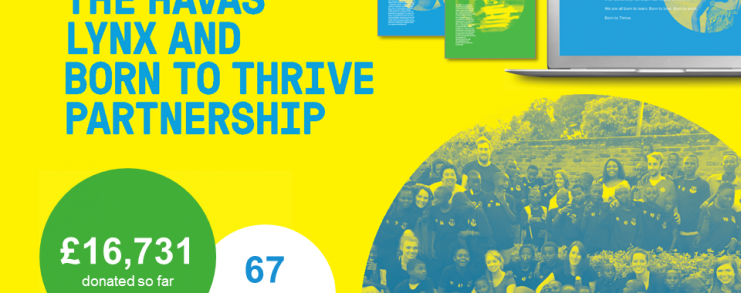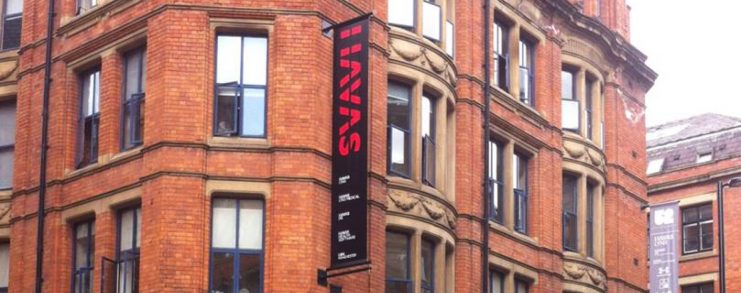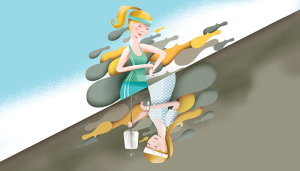The Hitchhiker’s Guide To The Millennial Healthcare Professional
Originally written in the late 1970s, Douglas Adams’ well-loved sci-fi masterpiece, The Hitchhiker’s Guide To The Galaxy, tells the story of Arthur Dent as he flees Earth shortly before it’s destroyed to make way for a hyperspace bypass. Accompanied by his alien friend Ford Prefect, Arthur finds himself floating around a universe in which small digital devices can tell you everything about anything; where foreign languages can be instantly translated into native tongues; where machine intelligence dwarfs the cognitive capabilities of mankind; and where flagging down a lift is as simple as pressing a button. A universe…rather like the one we live in now.
More than just another sci-fi oracle, Adams has proved an inspiration for those defining a future well beyond his own lifetime, including Dr. Jack Kreindler. A medical technologist and investor, Kreindler is one of a new wave of physician redefining what we expect from HCPs. He spoke to Havas Lynx as part of their research for Generation Now, a new white paper about the millennial HCP (mHCP).
Kreindler’s introduction to Adams set him on an extraordinary and unorthodox career path. To help support himself through medical school, a young Kreindler worked as an IT consultant for Adams: ‘I realised through working with Douglas that we were practicing medicine in kind of the Stone Age. And it got me thinking that perhaps the use of connected devices and information technology would absolutely transform what we regarded as truth in medicine.’
Since then, Kreindler has worked in A&E, specialised in high-altitude medicine, founded a centre for health and sporting performance, and invested in practices driven by machine learning. Each venture has vastly progressed his medical understanding and clinical practice. Moreover, they’ve provided a career diversity that is commonly sought out by millennials. Speaking at an RSM Digital Health Entrepreneurs event last September, Adam Tulk, CEO of Frameshift (who connect HCPs with temporary work), reported that ‘a lot of doctors want to have less of a purely clinical career and more of a portfolio career.’
Many seek extra-clinical opportunities in digital. Having grown-up with digital engrained in their everyday life, and seen its transformative impact firsthand, they have ambitions to harness this power to shake-up healthcare. ‘The key thing that is redefining those ambitions,’ says Dr. Kreindler, ‘is the generation of entrepreneurs that have made it very big; the Larry Pages, the Elon Musks, and the Zuckerburgs of the world. People don’t have the fear any more. They are thinking if they can do it so can I.’ Systems and providers are moving to support such ambitions. NHS England launched its Clinical Entrepreneurship Programme at the end of 2015, as part of a drive to open-up entrepreneurship and innovation to professionals. It’s a clear indication from Sir Bruce Keogh and his colleagues that, far from harming clinical practice, engaging professionals in non-clinical initiatives could benefit the nation’s healthcare.
And why wouldn’t it? Many mHCPs are as motivated by a sense of social conscience as theyare any personal ambition. Kristian Webb is a cardiac devices specialist who started up a number of initiatives to provide quality patient information. ‘It was the inaccuracies in medical information online that worried me,’ says Webb, ‘I felt I had a professional responsibility to put more accurate information out there.’ Unlike large healthcare companies and organisations, Webb felt no problem with engaging with patients online, using forums and social channels to direct them to robust clinical information before eventually starting up his own repository for cardiology information.
Engaging with patients online, monitoring them remotely, and providing timely information and advice will all be vitally important as mHCPs move away from treating sick patients and towards facilitating sustained good health. It’s a shift that’s vital if we are to alleviate the burden of aging populations suffering multiple comorbidities. But there will be challenges. mHCPs are going to need skills their predecessors never dreamed of, not least in communication. ‘We know more about when to inspire people, when to motivate them to make a change from the advertising industry than we do in medicine,’ says Kreindler.
Interpreting the wealth of data at their disposal will be as critical. As in The Hitchhiker’s Guide To The Galaxy, where the creators of the Deep Thought super computer so struggle to understand the answer it gives to ‘The Ultimate Question of Life, The Universe, and Everything’, so we have not yet mastered the reams of data available in such a way that professionals can easily make use of them.
There’s going to be plenty to keep mHCPs on their toes, especially with the expectations of increasingly empowered patients and the rocketing rate of medical innovation. As such, they’ll need support from all corners. For pharma, this means new opportunities in unchartered galaxies. It’s an exciting, challenging and important time. Just whatever you do, remember The Hitchhiker’s Guide’s golden rule; don’t panic.
More information available at www.m-hcp.com









